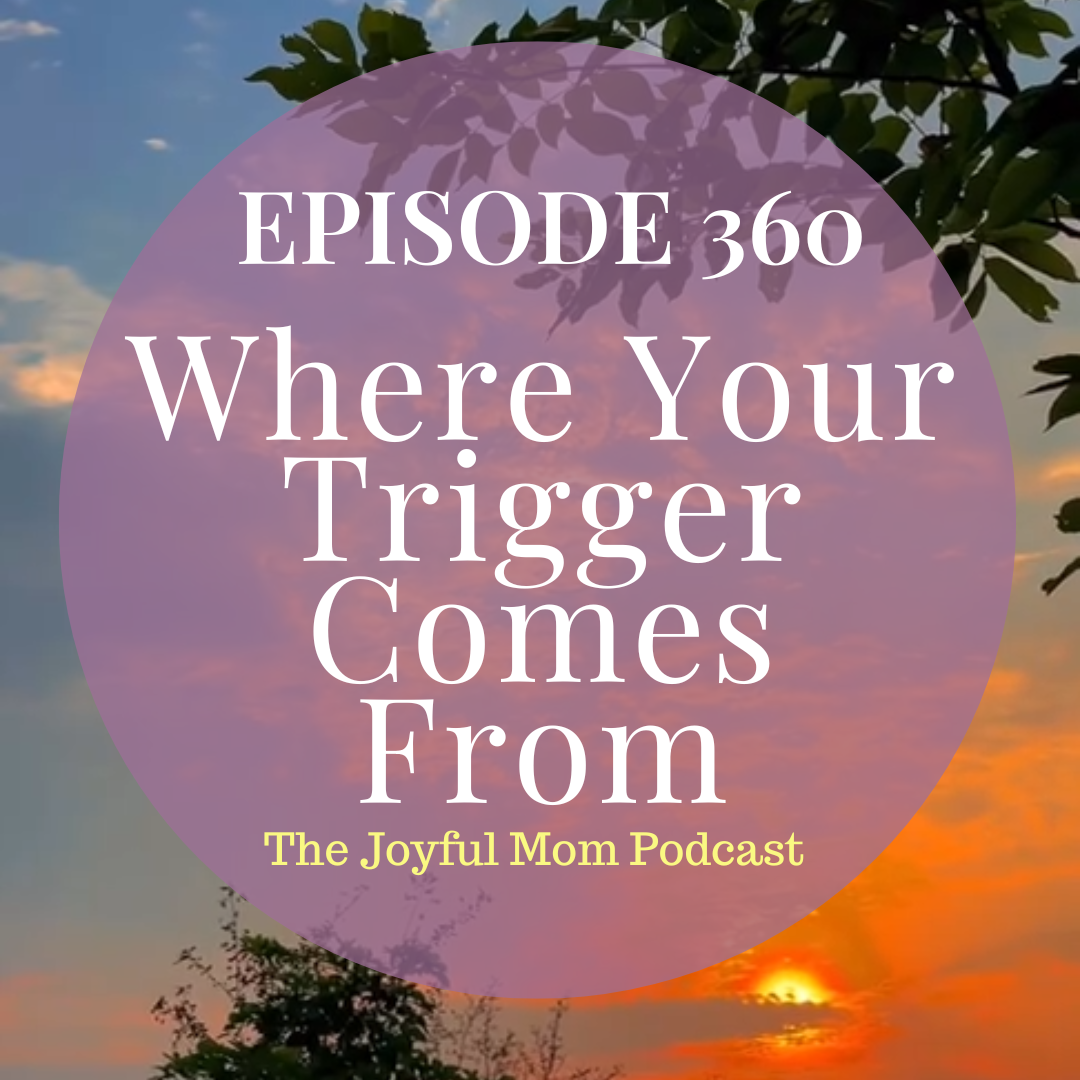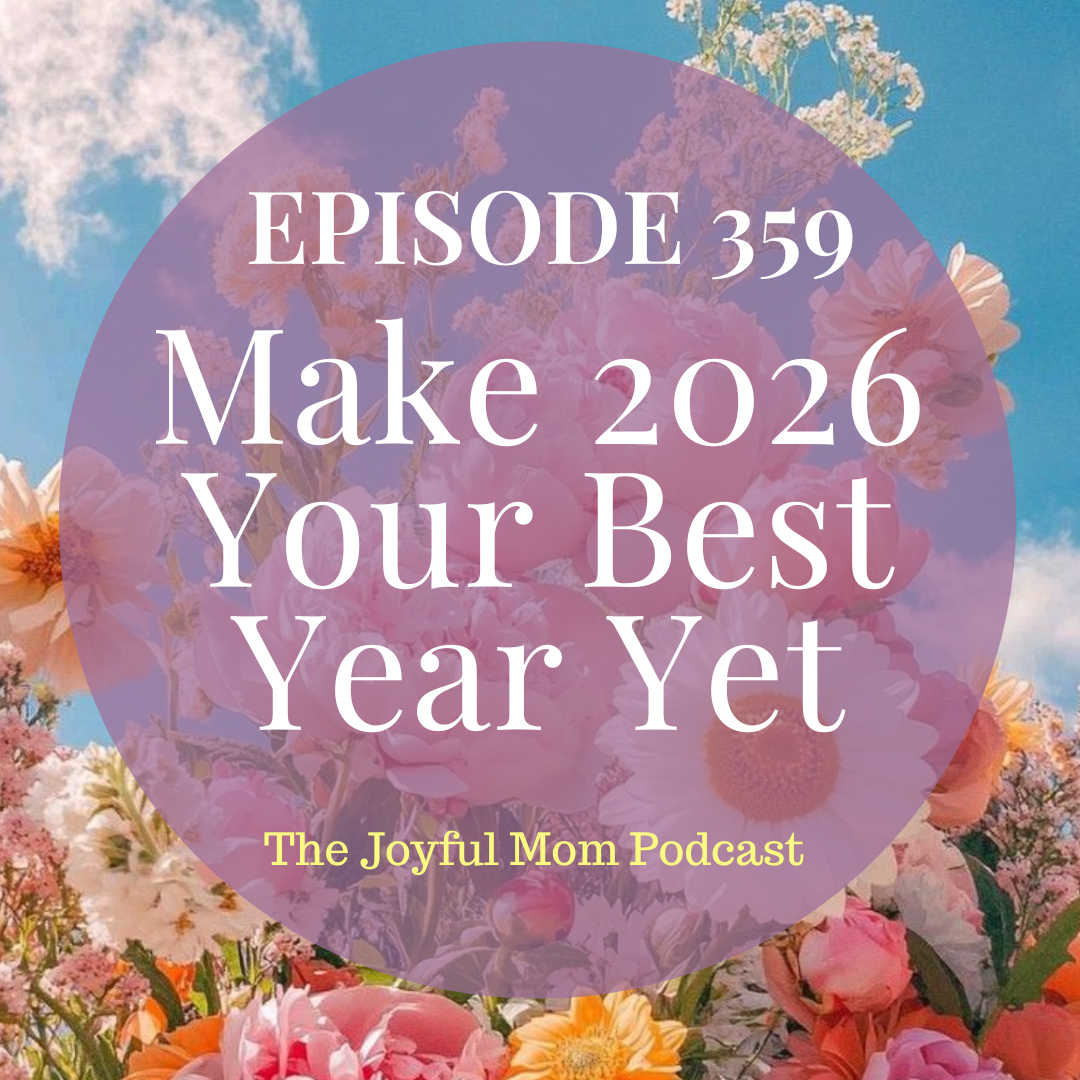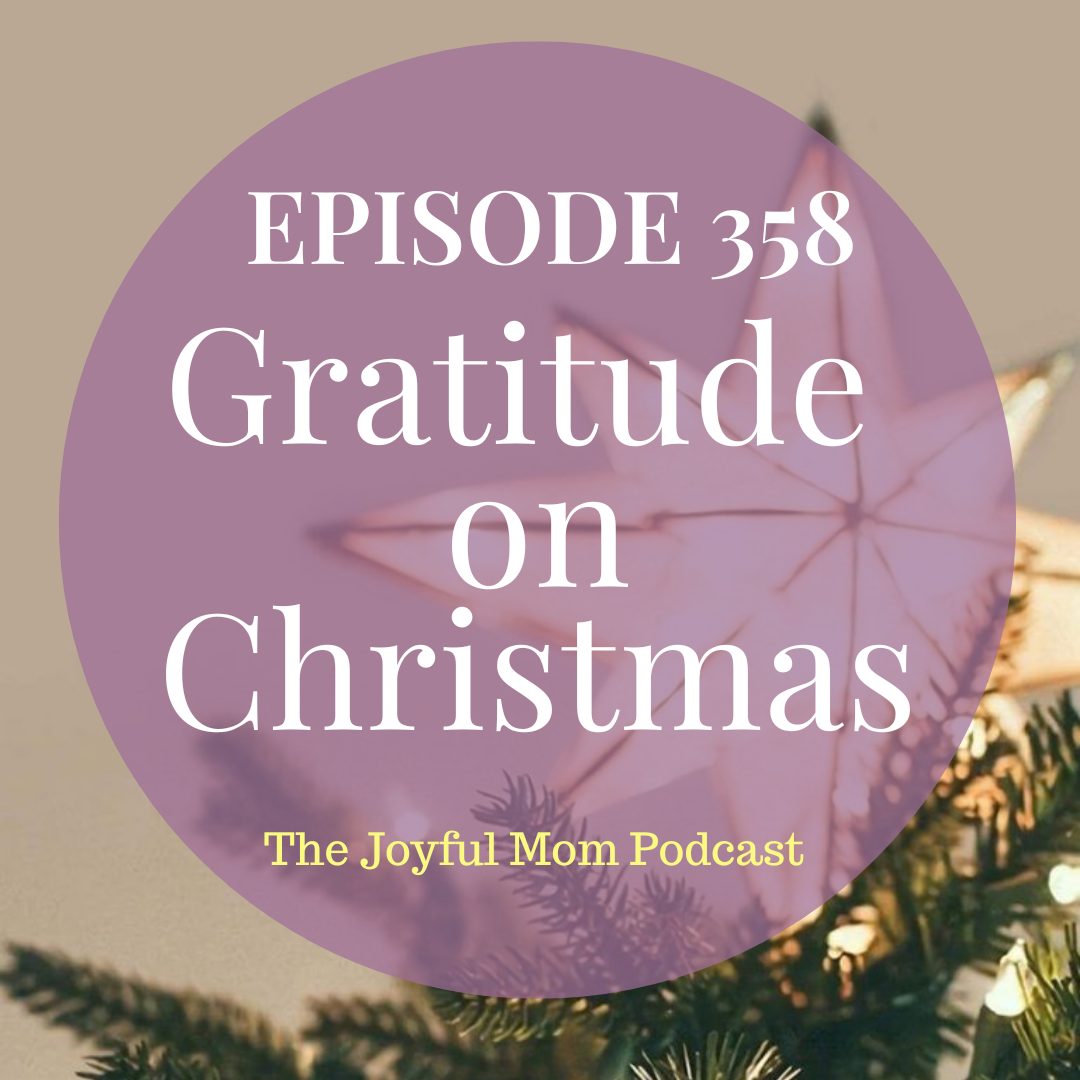334: 3 Reasons You Think You Yell (That Aren't the Real Reason)
Welcome to the Joyful Mom Podcast!
Imagine this: It's been a long day. Your coffee's been reheated three times but you've yet to finish it. The kids have been testing boundaries since sunrise, and you promised yourself this morning, "Today will be different. Today, I won't raise my voice."
But here you are again, hearing your volume rise, feeling your throat tighten, and watching your children's eyes widen as your words echo off the walls.
And immediately, the thoughts flood in: "They just won't listen!" "If only they would behave!" "What's wrong with me that I can't stay calm?"
I've been exactly where you are, so I completely get it. Today, we're going to shatter three of the most common misconceptions about why we yell – the stories we tell ourselves that keep us stuck in this cycle. These aren't just misconceptions; they're detours on your parenting journey that seem like shortcuts but actually lead you further from your destination.
Reason #1: "My kids make me yell"
Let's start with the big one. How many times have you thought or said, "If they would just listen, I wouldn't have to yell!"
This belief is like blaming the rain for getting you wet when you chose not to bring an umbrella. Our children don't have remote controls to our vocal cords. They aren't puppet masters pulling the strings of our emotions.
Think about this: Have you ever been on the phone with someone important – maybe your boss or your mother-in-law – when your child does the exact same thing that would normally make you yell? Yet somehow, miraculously, you find a calmer response. Why? Because in that moment, you're aware of being observed by someone whose opinion matters.
The truth is, our children are exactly who they're supposed to be at each developmental stage. A toddler throwing food isn't declaring war on your kitchen – they're discovering gravity. A seven-year-old forgetting chores isn't being deliberately disrespectful – they're living in a magical world where time is meaningless and play is everything.
Your children aren't making you yell any more than the ocean makes you swim. They're simply being children in the presence of your unprocessed emotions, your unmet needs, and your unpracticed responses.
When you catch yourself thinking "they make me yell," replace it with "this is an opportunity to understand what's really being triggered within me." Your children aren't the cause – they're the messengers delivering an invitation to grow.
Reason #2: "I just need to find the right parenting strategy or tool"
Oh, the holy grail of parenting solutions! If only we could find that magical technique that would transform us into perpetually peaceful mothers.
This belief is like thinking you just need the perfect workout equipment to become fit, while ignoring that you've barely slept or eaten properly in days. No exercise machine in the world can compensate for fundamental needs not being met.
Let me ask you this: How many parenting books are on your shelf? How many breathing techniques do you know? How many times have you told yourself, "Just count to ten" – only to explode at "three" because counting while triggered is like trying to put out a house fire with a spray bottle?
Here's what happens: We try a new technique. It works for a day or two. We feel hopeful! Then life throws its inevitable curveballs – sleepless nights, work stress, hormonal shifts – and suddenly that perfect technique crumbles like a sandcastle at high tide.
The tools aren't failing you. The problem is that you're trying to build a house of calm on a foundation of unaddressed needs. No amount of deep breathing can compensate for chronic sleep deprivation. No clever phrase will work when your own cup has been empty for weeks.
The most sophisticated car won't run without fuel, and the most brilliant parenting strategy won't work when you're running on empty. Instead of seeking the next magic solution, what if you asked: "What do I need right now to restore my capacity for calm?"
Reason #3: "I'm just a bad mom" or "There's something broken in me"
This is perhaps the most painful belief – that your yelling is evidence of some fundamental flaw in your mothering ability or your very being.
This belief is like concluding you're a terrible cook because you burned a meal while the kitchen was literally on fire. Context matters. Your capacity matters. Your history matters.
Consider this: If you were truly a "bad mom," would you be listening to this podcast right now? Would you feel that pang of regret after yelling? Would you be constantly seeking ways to do better by your children? Bad mothers don't worry about being bad mothers – that worry, that care, that desire to improve is precisely what makes you a good one.
When we yell, we're not revealing our character – we're revealing our current capacity. Like a glass that overflows not because it's a defective glass, but because it can only hold so much before the laws of physics take over.
Your brain and body are working exactly as they're designed to. When your nervous system perceives threat or overwhelm (even if it's just the threat of being late or the overwhelm of repeated boundary-pushing), it activates defense mechanisms – including raising your voice to establish control over a situation that feels out of control.
You're not broken. You're human. You're not failing at motherhood; you're experiencing the natural consequences of trying to do one of life's hardest jobs without adequate support, rest, and tools for processing your own emotional inheritance.
So- these three beliefs – that our kids make us yell, that we just need the right technique, or that we're fundamentally flawed – they're not just wrong. They're keeping us locked in cycles of shame and frustration that prevent us from addressing the real issues.
The truth about yelling is both simpler and more profound: Yelling is a check engine light, not an indictment of your parenting. It's your body and mind sending you urgent messages about your capacity, your unmet needs, and yes – sometimes your unhealed wounds.
But here's the beautiful thing – once you understand the real roots of yelling, you can begin a journey not just of "yelling less" but of genuine healing and transformation. A journey that changes not just how you speak to your children, but how you speak to yourself.
In my free training next week, "Why Good Moms Yell and How to Stop," I'll guide you through understanding the true source of your yelling and show you a path forward that doesn't depend on willpower or perfect children. As mothers, we shape the emotional climate of our homes. You have the power to transform that climate from stormy to sunny – not by forcing yourself to be calm, but by healing what needs to be healed.
Join me at www.meganhillukka.com – just click the pink button – or find the registration link in my Instagram bio. Together, we'll discover why good moms yell and how to write a new story for your family – one where your voice becomes a source of connection rather than disconnection.
Because you're not a bad mom who yells. You're a good mom who's ready to heal.
If you want to learn more about how you can clear anxiety more automatically by rewiring how the mind is working and processing things, go to my website www.meganhillukka.com where you can click on a link to register for my free training, where I will show you what you need in order to do this.












